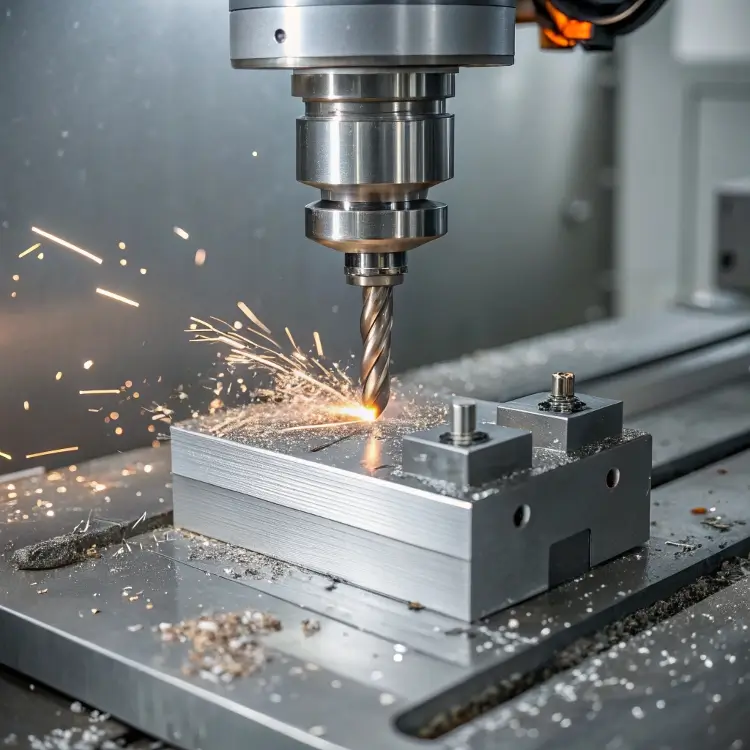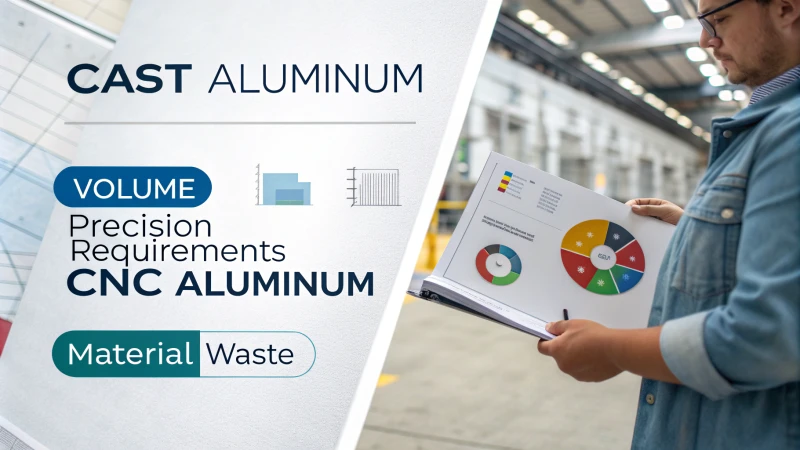CNC Machining Uganda: Manufacturers & Industry Guide
Del 1: Markedets størrelse og vækst
Uganda’s manufacturing sector is modest but growing, with increasing interest in precision engineering, repair services, and custom component production. As infrastructure, energy, and agricultural machinery expansion continues, the need for custom metal parts-shafts, flanges, brackets, couplings-rises. I have seen more advertisements in Kampala and regional centers for CNC turning, milling, laser cutting, and plasma cutting services.
In Uganda, most CNC capability today is still at the workshop or job-shop level, often focusing on prototyping, small batches, fabrication, or repair. Machine shops integrate CNC routers, CNC plasma cutters, and basic milling/turning centered around maintenance demands. Some shops are gradually upgrading existing manual lathes with CNC retrofits. However, capital investment, skilled labor, tooling supply, and power stability remain key constraints.
Growth will depend on enabling conditions: import duty regimes, financing, vocational training, and local supply chains for tooling and consumables. If these improve, we might see a shift from purely reactive repair work toward more proactive component manufacturing and subcontracting in East Africa.
Del 2: Førende virksomheder/serviceudbydere
Here are some known or emerging CNC / fabrication players in Uganda, plus plausible workshops that illustrate how the ecosystem functions.
Precision CNC Plasma Cutting Services (Quadrat Innovations Uganda Ltd)
Kontakt nu
This service advertises precision CNC plasma cutting and custom fabrication from Kampala (Central Region).
They provide plate cutting, custom metal design, and steel fabrication. Their clients likely include structural firms, architectural metalwork, and machinery repair shops. While plasma cutting is narrower than full CNC milling/turning, it shows demand for CNC-based fabrication. Their ability to cut precisely helps bridge gaps in heavy-duty fabrication and quick custom solutions.
CNC Machining Parts Uganda
Kontakt nu
This is a listing for “custom machining precision CNC turning part in Uganda.”
They appear to serve clients needing turned parts and custom components. Their operations probably include lathes, turning, perhaps small milling and finishing. They act as a local alternative to importing small precision components.
Ideas Workshop Uganda
Kontakt nu
This workshop describes usage of CNC machines for wood routing, plasma cutting, laser cutting, forming, and engraving.
Though their work includes non-metal materials, their adoption of CNC technologies indicates growing awareness and capability in digital fabrication. Their experience with CNC may evolve into metal component machining as demand and tooling improve.
Industrial Machines Uganda
Kontakt nu
While primarily a supplier of machinery, raw materials, installation and maintenance services, Industrial Machines Uganda supports manufacturing infrastructure.

They import and install metalworking and factory machines, possibly including CNC equipment, and provide support to workshops. Their role is critical as a node in the machinery and tooling supply chain.
Local Workshop – Kampala Precision Works (hypothetical)
Kontakt nu
Given the urban demand and repair markets, it is plausible that a workshop in Kampala offers both traditional and CNC machining-turning, milling, boring, finishing.

They would serve construction firms, agricultural machinery repair, vehicle parts, and smaller manufacturing clients. Their competitive edge is quick response, local proximity, and hybrid machine capacity (manual + CNC).
| Virksomhed / værksted | Status / Fokus | Kerneydelser/produkter | Industrier, der betjenes | Styrker/roller |
|---|---|---|---|---|
| Precision CNC Plasma (Quadrat Innovations) | CNC plasma cutting & fabrication | Plate cutting, structural parts | Construction, metalwork, repair | Fast fabrication for custom parts |
| CNC Machining Parts Uganda | Turned and machined components | Precision turning, small machining | Industrial maintenance, machinery repair | Local alternative to imports |
| Ideas Workshop Uganda | Multi-material CNC work | Routing, laser/plasma, forming | Prototyping, fabrication, design | Early adopters of CNC tech |
| Industrial Machines Uganda | Machinery supply & services | Machine import, installation, maintenance | Workshops, factories | Support for machining ecosystem |
| Kampala Precision Works (hypothetical) | General shop | Machining, repair, small manufacturing | Vehicles, equipment, parts | Local service responsiveness |
Del 3: Messer og brancheevents
Østafrikas industri- og fremstillingsudstilling
This regional expo (often held in Kenya or Uganda) features machine tools, fabrication equipment, automation, and tooling vendors. It draws participants from East Africa and beyond. CNC and precision workshops use it to survey available equipment and vendors, and to network with suppliers.
Uganda Industrialization / Maker Fairs
Local industrial or “maker” fairs in Kampala or regional cities showcase innovation, fabrication capabilities, and small-scale manufacturing tools (including CNC routers, laser cutters, digital tools). These fairs allow CNC workshops to demonstrate ability, attract clients, and engage users of rapid prototyping.
| Begivenhed | Dato / hyppighed | Beliggenhed | Højdepunkter |
|---|---|---|---|
| East Africa Industrial Expo | Årlig / toårig | Kampala / Nairobi | Machine tools, automation, supplier showcase |
| Uganda Maker / Industrial Fair | Occasional / yearly | Kampala or major towns | Fabrication, CNC demos, workshop networking |
Del 4: Indvirkning af globale handelspolitikker
Uganda’s CNC machining potential hinges heavily on import policy, trade logistics, and supply chain integration. CNC machines, controllers, high-precision tooling, and materials usually come from foreign suppliers, often in Asia or Europe. High import duties, freight, and customs delays make capital investment risky for small workshops.
Given that Uganda is landlocked, import logistics (via Mombasa, Dar es Salaam, or via roads) add time and cost. Local workshops may rely on secondhand or refurbished CNC machines, or maintain large inventories of spare parts to mitigate delays. Lower tariffs or duty relief on industrial capital goods would significantly help.
Competition from stronger CNC hubs in Kenya, South Africa, or East Asia is real. Many components can still be imported cheaper than local manufacture if tooling is expensive or scale is low. To compete, Ugandan machinists must emphasize quick turnaround, local service support, customization, and reliability.
Supply chain issues are critical. Delays in cutting inserts, spindles, precision bearings, or tooling consumables can idle a shop. Workshops may adopt in-house tool grinding, consumables recycling, or regional collaborations to stabilize supply. Establishing local tooling, abrasives, and cutting tool supply networks can reduce dependencies.
Policy incentives for industrial parks, cluster formation, training subsidies, and financing could elevate the CNC ecosystem. Partnerships with technical schools, donor programs, or foreign firms can help impart advanced CNC skills and process discipline.
Del 5: Konklusion
Uganda’s CNC machining sector is nascent but shows promise. Existing services like plasma cutting, precision turning, fabrication, and CNC routing form the foundation. As workshops invest in capability and the market for custom parts expands (for machinery, infrastructure, agriculture), CNC machining can evolve from a support role to a local manufacturing pillar.
Challenges are significant-capital costs, tooling availability, skills, and trade logistics. But with strategic investments in training, policy support, and local tool supply, Uganda’s machining workshops can bridge gaps currently filled by imports. Over time, shops that combine reliability, quality, and responsiveness may capture a larger share of regional demand, positioning Uganda as an emerging precision manufacturing node in East Africa.
Anbefalet læsning:.
- CNC Machining Papua New Guinea: Manufacturers & Industry Guide
- CNC Machining Burundi: Manufacturers & Industry Guide
- CNC Machining South Sudan: Manufacturers & Industry Guide
- CNC-bearbejdning Venezuela: Producent- og industriguide
- CNC-bearbejdning Palæstina: Producenter og industriguide
- CNC-bearbejdning Monaco: Producent- og industriguide
- CNC-bearbejdning Sudan: Producenter og industriguide
- CNC-bearbejdning Marshalløerne: Producent- og industriguide
Hvad er forskellen på aluminiumsprofiler 6061 og 6063?
Aluminiumsrør med lille diameter
Sømløse rør i aluminium
Sammenlåsende aluminiumsprofiler








